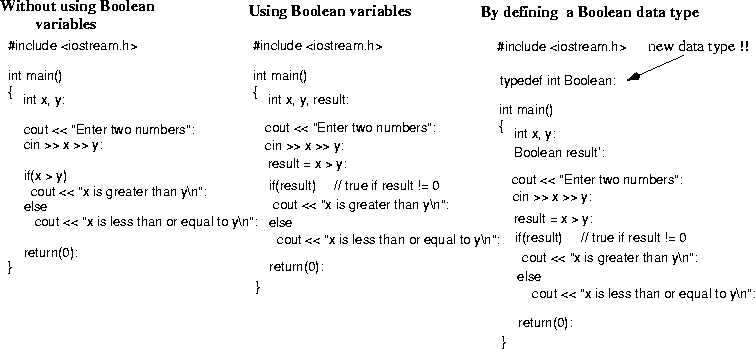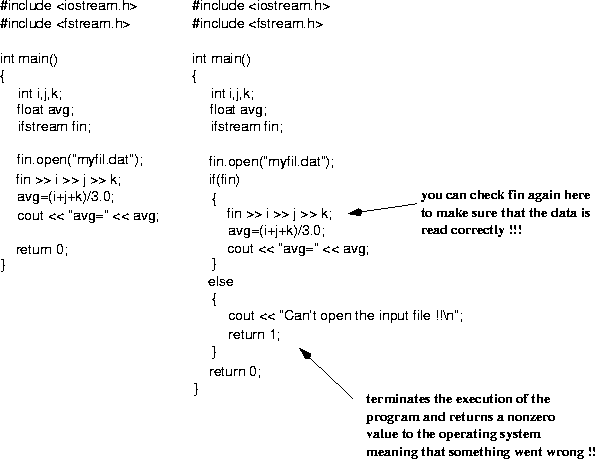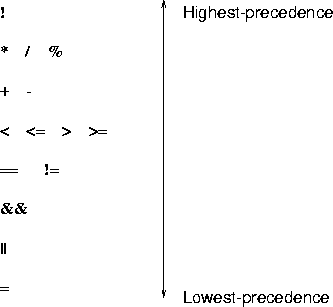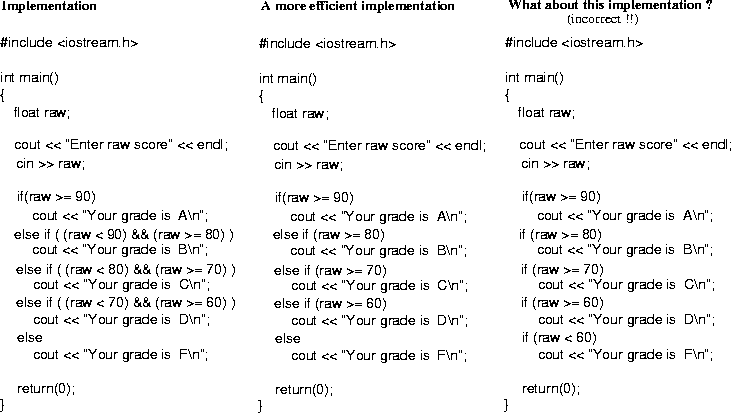Boolean variables
- We have seen that we can store the value of an arithmetic expression to a variable
sum=x+y; (x,y,sum may be int, float, double etc.)
- The same is true for logical (or Boolean) expressions: the value of a logical
expression can be stored to a (Boolean) variable
result = x > y; (x,y may be int, float, double etc., but result can only be a Boolean variable)
- Boolean variables can have only two values: true or false
- C++ does not have a Boolean data type (other languages, like Pascal for example, do)
- The reason is that a Boolean data type can be implemented using the int data type !!
- Rule: the value 0 represents false and every nonzero value represents true
If x=10 and y=20 in the above example, then result=0
- Logical expressions can then be substituted in the if statements by Boolean
variables

- Defining new data types
|
typedef ExistingTypeName NewTypeName;
|
- We can define a Bollean datatype as follows
typedef int Boolean;
- By defining the data type Boolean, we make clear for somebody to understand
that certain identifiers are Boolean identifiers
- It should be noted that the compiler substitutes (during compilation)
the word Boolean with the word int everywhere in the executable
(i.e., machine code)
- Combining Boolean variables with logical operators
cond1= x > y;
cond2= x > z;
if (cond1 && cond2)
x=y+z;
- C++ allows programmers to define new data types using the statement typedef
- More examples using Boolean variables
score=(finalScore > 90) && (midtermScore > 90);, dataInvalid=(inputVal == 0);
Testing the state of the I/O stream
- Detecting the fail state when invalid data is provided
cin >> i >> j >> k;
cout << "i: " << i << " j: " << j << " k: " << k;
* if we enter the following data 1234.56 7 89 the input stream will enter
the fail state

* The fail state can be detected by checking the value of cin
*If everything went ok, cin has a nonzero value, otherwise, it has the value
zero
cin >> i >> j >> k;
if(cin)
cout << "i: " << i << " j: " << j << " k: " << k;
else
cout << "The fail state has been detected !!0;
- Detecting the fail state when trying to open an input file which doesn't exist





